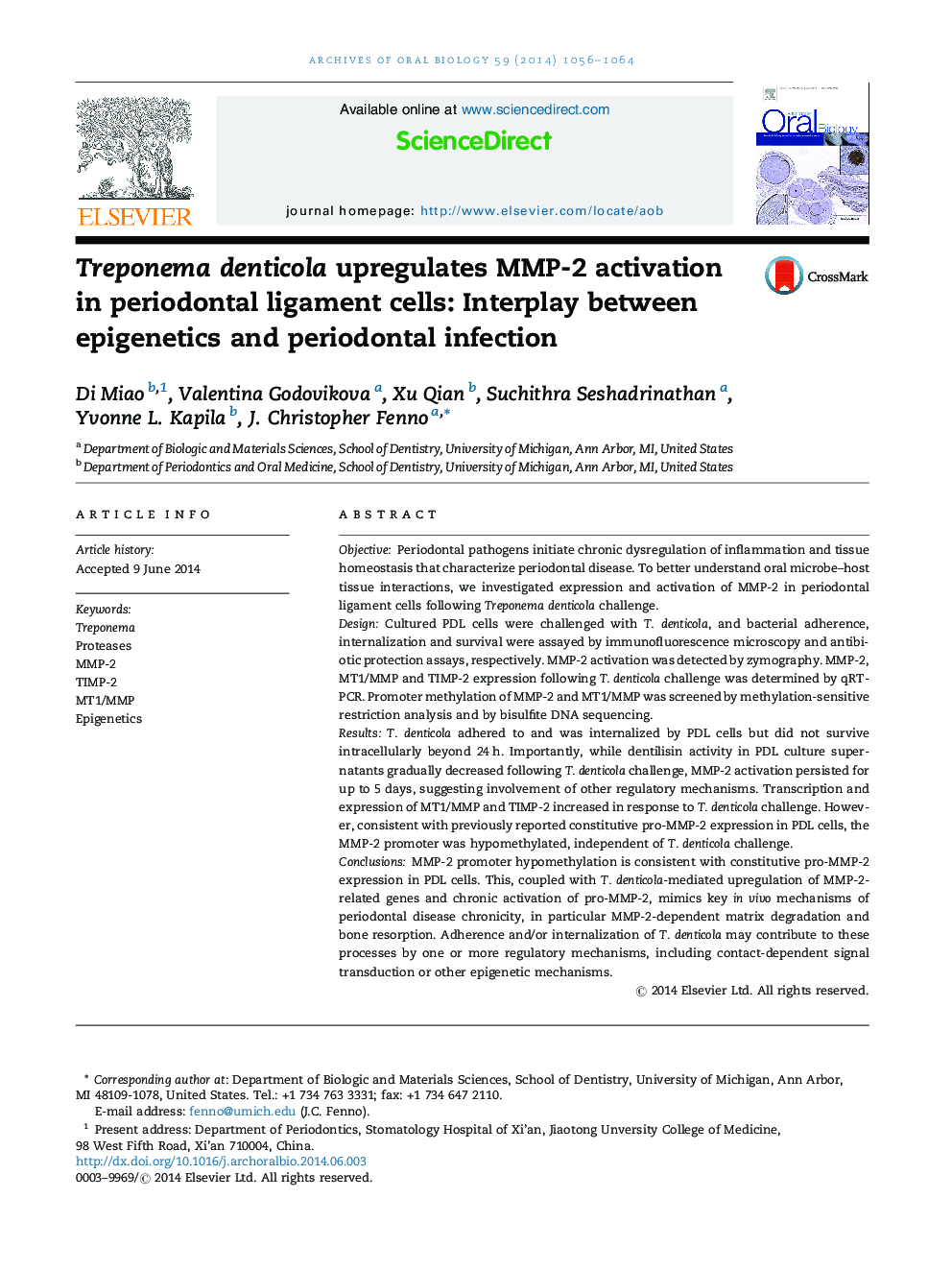| Article ID | Journal | Published Year | Pages | File Type |
|---|---|---|---|---|
| 3120931 | Archives of Oral Biology | 2014 | 9 Pages |
•T. denticola dentilisin activates constitutively expressed pro-MMP-2 of PDL cells.•MMP-2 activation persists for up to 5 days after a brief T. denticola challenge.•T. denticola is taken up into vacuoles by PDL cells and rapidly loses viability.•PDL cells’ MMP-2 promoter is hypomethylated, independent of T. denticola challenge.•T. denticola dentilisin upregulates expression of TIMP-2 and MT1/MMP.
ObjectivePeriodontal pathogens initiate chronic dysregulation of inflammation and tissue homeostasis that characterize periodontal disease. To better understand oral microbe–host tissue interactions, we investigated expression and activation of MMP-2 in periodontal ligament cells following Treponema denticola challenge.DesignCultured PDL cells were challenged with T. denticola, and bacterial adherence, internalization and survival were assayed by immunofluorescence microscopy and antibiotic protection assays, respectively. MMP-2 activation was detected by zymography. MMP-2, MT1/MMP and TIMP-2 expression following T. denticola challenge was determined by qRT-PCR. Promoter methylation of MMP-2 and MT1/MMP was screened by methylation-sensitive restriction analysis and by bisulfite DNA sequencing.ResultsT. denticola adhered to and was internalized by PDL cells but did not survive intracellularly beyond 24 h. Importantly, while dentilisin activity in PDL culture supernatants gradually decreased following T. denticola challenge, MMP-2 activation persisted for up to 5 days, suggesting involvement of other regulatory mechanisms. Transcription and expression of MT1/MMP and TIMP-2 increased in response to T. denticola challenge. However, consistent with previously reported constitutive pro-MMP-2 expression in PDL cells, the MMP-2 promoter was hypomethylated, independent of T. denticola challenge.ConclusionsMMP-2 promoter hypomethylation is consistent with constitutive pro-MMP-2 expression in PDL cells. This, coupled with T. denticola-mediated upregulation of MMP-2-related genes and chronic activation of pro-MMP-2, mimics key in vivo mechanisms of periodontal disease chronicity, in particular MMP-2-dependent matrix degradation and bone resorption. Adherence and/or internalization of T. denticola may contribute to these processes by one or more regulatory mechanisms, including contact-dependent signal transduction or other epigenetic mechanisms.
